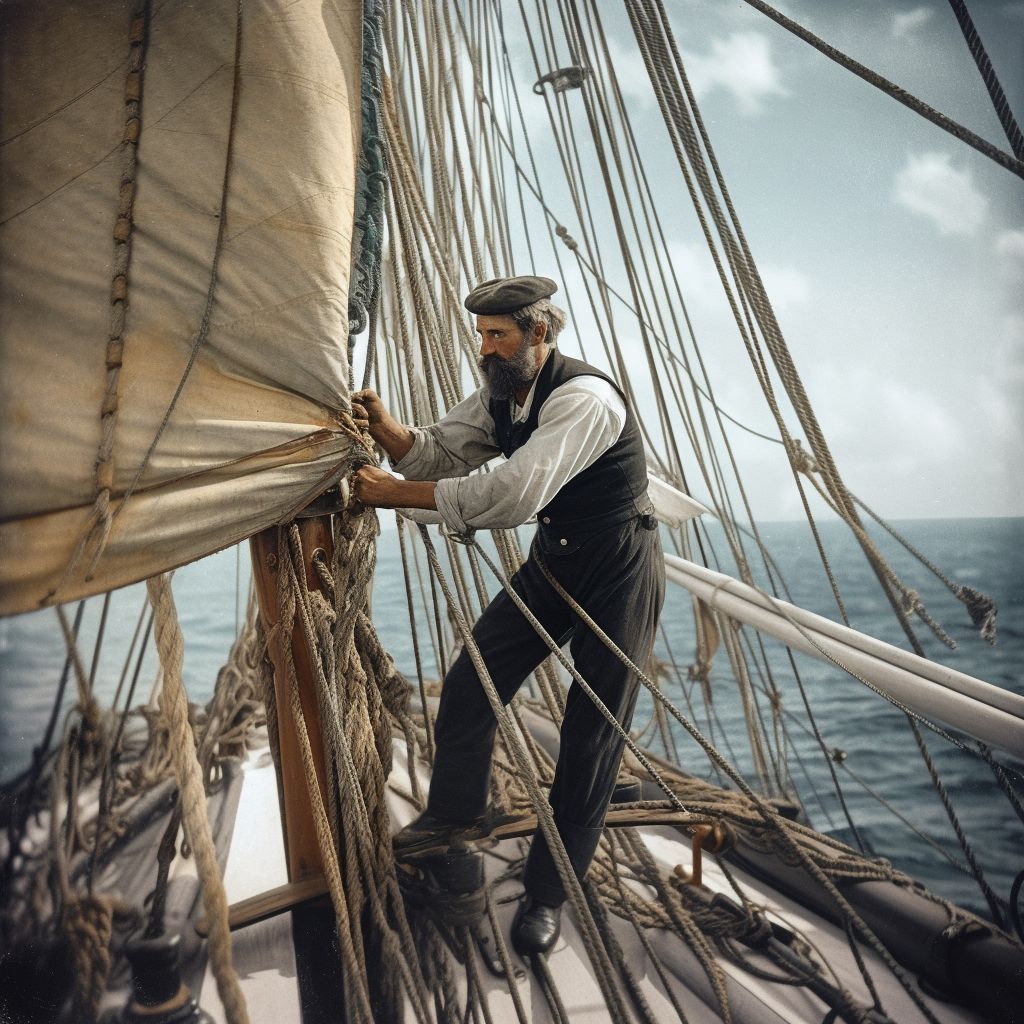Sailor
Sailors have long played a pivotal role in exploration, trade, and transportation across the world's oceans. In the latter half of the 19th century, the Age of Steam and rapid advances in shipbuilding technology revolutionized the maritime industry. Despite the widespread adoption of auto sapient automatons in various industries, sailors in the 1880s continued to ply their trade without the assistance of these advanced machines, relying on their skill, experience, and resilience to navigate the open seas.
The Role of Sailors
Sailors in the 19th century were responsible for a wide range of duties on board ships, including navigation, maintaining the ship's hull and rigging, and ensuring the safety of both cargo and passengers. They were skilled in the use of traditional sailing techniques, as well as the operation and maintenance of steam-powered vessels. Sailors were also proficient in the art of seamanship, including knot tying, chart reading, and understanding the complex interplay of wind and currents.
Life at sea was often harsh and demanding, with sailors facing long periods away from home, cramped living conditions, and the constant threat of storms, shipwreck, and other maritime hazards. Despite these challenges, the sailor profession attracted individuals drawn to the freedom and adventure offered by a life on the open sea.
The Absence of Automatons in Maritime Operations
While auto sapient automatons and other mechanized technologies had been adopted in various industries across the United States, their use in maritime operations remained limited in the 1880s. The primary concern was that these machines were highly susceptible to damage from water and humidity, rendering them unsuitable for use in the harsh and unpredictable conditions encountered at sea.
As a result, sailors continued to rely on traditional methods of ship operation and maintenance, preserving their vital role in the maritime industry. The absence of automatons in seafaring professions reinforced the importance of Human skill and ingenuity in navigating the world's oceans.
Conclusion
In the 1880s, sailors remained essential to the operation and success of the maritime industry, despite the transformative impact of technology in other sectors. While Auto Sapients and other automatons had revolutionized various industries on land, sailors continued to harness their expertise and knowledge to master the open seas without the aid of these advanced machines. The sailor profession stood as a testament to the enduring importance of human skill and resourcefulness in the face of rapid technological change.
Type
Transportation

